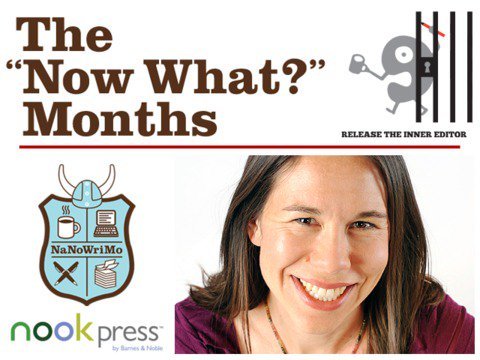Now What? An Overview of the Publishing Landscape

As part of NaNoWriMo’s “Now What?” Months, Nook Press is sponsoring a free webinar with Brooke Warner, author and publisher, on Thursday, February 11, 2016, at 4 PM PST. As a lead-up, Brooke offers a quick snapshot of the publishing landscape you might be facing this year:
Modern aspiring authors hoping to land a traditional deal face the difficult reality. The barriers to traditional publishing are higher than they’ve ever been, and if you’ve ever shopped a manuscript, you’ve no doubt experienced the excruciating pace of traditional publishing.
On the nontraditional side, the publishing world is virtually exploding. There are authors taking advantage of what’s happening in this space, and authors holding back. It’s hard to let go of the dream of having a New York agent or editor validate your work. And yet, in the past ten years or so, the majority of traditional deals are going to those writers who come to the table with a preexisting platform, meaning they’re already kind of famous.
There’s only one key to publishing success, and that’s getting published. What follows is a quick 411 on the current publishing landscape for aspiring authors, so you can wrap your mind around what’s what and formulate a good plan.
Traditional publishingI still recommend that first-time authors try for a traditional deal. But I also encourage authors to advocate for themselves. Traditional publishers are used to calling the shots. They have a legacy of bestowing the privilege to publish onto a select few whom they deem to be worthy.
Move forward with your eyes wide open. Weigh the benefits of what a traditional publisher can offer you (paying for the costs of publishing) against what they keep (a high percentage of your royalty, your rights, and sometimes even your copyright).
Hybrid publishingThis is the emerging middle ground of publishing. There are numerous models and they all offer different things, so you want to shop around and ask questions and interview authors who’ve come before you.
This is author-subsidized publishing, but the percentages on the tail end are much higher than traditional publishing. Some hybrid publishers afford you the opportunity to operate like a traditional author would, with the benefits of distribution, and working with a publishing entity that has a strong existing presence and/or reputation in the marketplace. The downside to these models is that they’re still new, and some of them are working out their kinks, but the chance to rival your traditional counterparts and give your book a real fighting chance in the marketplace might well be worth it.
Self-publishingOnce disdained and maligned for all they did wrong, self-published authors are fighting back big time with well-designed and edited books, best-sellers amongst their ranks, and a whole new generation of authors who have learned the business and are taking publishing by storm. To self-publish, however, means getting your hands dirty.
If you don’t want to learn the business, go hybrid. But if you have the aptitude, and you want to invest in your long-term career as an author, self-publishing can be a ticket to long-term success. The hard part is the fighting you will have to do for legitimacy in print. Which is why some of the most successful self-published authors are those who’ve established their own imprints and end up operating more like hybrid presses than self-published authors.
The Wrap-UpIf you’re an aspiring author, the end goal is to get published. You might try one of the options above, or have hybrid or self-publishing as a back-up. You might publish all three ways over the course of your career. Regardless, the end product that is your book will be less impacted by where and how it gets published than by the quality of the team you work with and your own experience along your publishing journey.
Traditional publishing is the gold standard, but it’s a standard that any of us can meet and uphold. We are all in this business of writing and publishing for the same goal—to create good books that other people want to read. Thus, your only mandate is to publish well. Know your options, and don’t sit around waiting for someone else to green-light your book. In the end, the biggest indicator of your becoming a successful author is not the publishing path you earn or choose; it’s you, and the effort you put into your work.
Brooke Warner is publisher of She Writes Press, president of Warner Coaching Inc., and author of Green-light Your Book (June 2016), What’s Your Book?, How to Sell Your Memoir, and the co-author of Breaking Ground on Your Memoir. She is the former Executive Editor of Seal Press. She blogs actively on Huffington Post Books and SheWrites.com, and you can find her on Facebook and Twitter at warnercoaching and @brooke_warner.
Chris Baty's Blog
- Chris Baty's profile
- 63 followers



